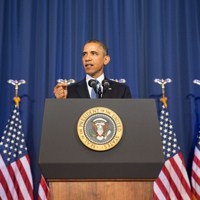
A historic change is underway in the global security system. As Harvard political scientist Stephen Walt wrote, the world is witnessing “a sharp decline in America’s ability to shape the global order.” In the future, Walt and others believe, “the United States simply won’t have the resources to devote to international affairs that it had in the past.” Christopher Layne of the George Bush School of Government and Public Service at Texas A&M University is even more blunt: “The epoch of American dominance is drawing to a close, and international politics is entering a period of transition: no longer unipolar […]





